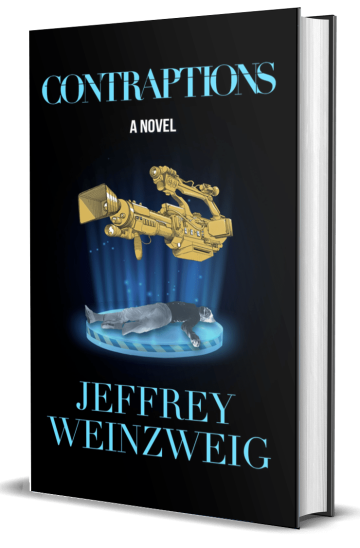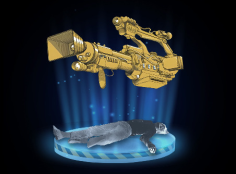What if you could literally look into the past—reconstruct moments not from memory, but from residual heat? That’s the question at the heart of the Thermalyzer, a groundbreaking invention in Jeffrey Weinzweig’s Contraptions. But this isn’t just a cool tech concept. It’s a powerful metaphor for the way we engage with memory, trauma, and the irreversibility of time.

At its core, the Thermalyzer is a camera that captures more than images—it records the heat left behind by events, turning invisible thermal residue into visible scenes. The implications are thrilling, especially in the story’s context of solving a murder. But what lingers beyond the plot is a psychological question: Why are we so obsessed with seeing the past?
Thermal Energy as a Metaphor for Memory
Memory, like heat, lingers. Sometimes faint. Sometimes sharp. It clings to spaces, people, objects—shaping how we interpret the present. The Thermalyzer externalizes that idea. It doesn’t just help characters recall what happened. It visualizes the imprint events leave behind, mirroring how our minds replay moments we can’t let go.
When Derek and Ojo use the device to exonerate a friend, it’s more than a forensic tool. It’s a mirror into their own unresolved experiences. Derek’s recurring nightmares about his father’s death—playing on a loop—mirror the Thermalyzer’s ability to replay moments. For him, technology becomes a way of gaining control over uncontrollable memories.
Reclaiming the Irretrievable
The psychological weight of Contraptions lies in this very concept: reclaiming what seems lost. Every character is, in some way, trying to make peace with the past. Christine struggles with childhood trauma. Ojo, an immigrant shaped by exile and displacement, faces cultural and familial separation. Even Arti, the robot, seems haunted by coded echoes of his creators’ personalities.
The Thermalyzer becomes a literal and figurative tool for revisiting pain and seeking justice. But Weinzweig doesn’t let us forget: just because we can see the past doesn’t mean we can change it. The visuals might be crisp, but the emotions remain murky.
The Burden of Clarity
One of the most chilling realizations in Contraptions is that knowing the truth doesn’t always bring comfort. It may expose betrayal, corruption, or personal failure. The past, once viewed, becomes undeniable. And that can be both healing and haunting.
In a world where memory can be manipulated or mistrusted, the Thermalyzer offers clarity—but also forces confrontation. That’s something readers deeply relate to, especially in an era dominated by surveillance, digital footprints, and trauma-informed culture.
Why This Matters Now
Modern psychology emphasizes the value of trauma processing, memory work, and narrative reconstruction. Weinzweig taps into this current through speculative fiction. He offers a sci-fi lens into how people process the things they can’t forget—and how technology might one day change that.
In doing so, Contraptions becomes more than a technomedical-thriller. It becomes a story about truth, memory, and what it means to see the past not just as information, but as impact.
The Thermalyzer may be a fictional device, but its implications are real. In Contraptions, Weinzweig gives us a new way to think about our relationship with memory—how we chase it, trap it, and sometimes wish we could unsee it.
And maybe that’s the real power of the book: it doesn’t just entertain. It makes you remember.
